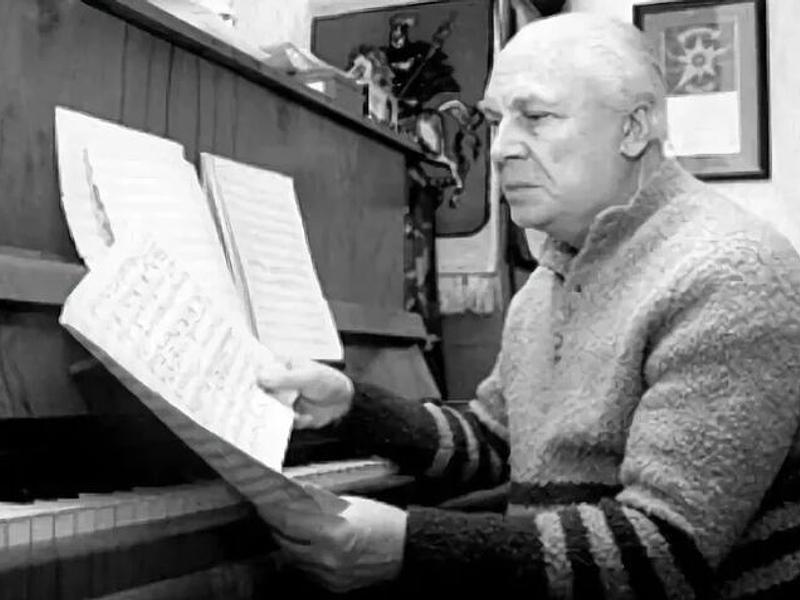Mark Fradkin

Born May 4, 1914 in Vitebsk into the family of doctors Grigory Konstantinovich Fradkin and Yevgenia Mironovna Shagalova.
Soviet composer. Honored Artist of the RSFSR (1969). People's artist of the Russian Soviet Federative Socialist Republic (20.12.1974). People's Artist of the USSR (6.11.1985).
As a child, Mark was most fond of technique, and after graduating from school he entered the city polytechnic. The musical talent of the future composer did not manifest itself at once. After graduation, the young professional was sent to a large sewing factory "Banner of Industrialization" as a safety engineer, where he worked for 2 years, and then joined the 3rd Belarusian Theatre as an actor. In 1934 he arrived in Leningrad, where he entered the second course of the Theater Institute, where his first composition tests began. He studied musical and theoretical subjects under the guidance of A. P. Gladkovsky and L. A. Entelis. Graduated from the Leningrad Theatre Institute in 1937. From 1938 to 1939 he worked at the Minsk Territorial Youth Theater (actor, director and head of the musical part). Simultaneously, he studied composition at the Belarusian Conservatory with Nikolai Aladov. Fradkin was drafted into the army in 1939 into a rifle regiment in Vinnitsa, where he quickly organized an amateur ensemble. During the war, he directed an ensemble of the Kiev military district, and around the same time he began collaborating with the poet Yevgeny Dolmatovsky. In 1944 Fradkin was admitted to the Union of Composers and began to work in Moscow.
His first songs - "Song about the Dnieper" (1941), "Accidental Waltz" (1942), "Bryansk Street" (1944, all on s. E. A. Dolmatovsky), "Song about Volga Bogatyr" (on his own words, 1943), "Whirling, whirling blizzard over us" (s. L. I. Oshanin, 1945) were performed on the roads of war and won wide popularity. The front theme is also embodied in the songs "Normandy Squadron" (v. Dolmatovsky, 1957), "Birches" (v. V. Ya. Lazarev, 1958), "For That Boy" (v. R. I. Rozhdestvensky, 1972, 1st prize at the International Festival in Sopot). The songs of Fradkin are characterized by high civic consciousness, multifaceted themes, and soulful lyricism. The music is characterized by the ease of deployment of melody, the richness of rhythm, a combination of lyric singing and recitation. In the song "The Volga is flowing" (s. Oshanin, 1960), the composer draws on folk origins and recreates the spirit of Russian songwriting. A large part of the songs were written for films (the author of music for more than 30 films) - "We lived next door" (1956), "Behind the factory outpost" (1958), "Komsomol Volunteers" (1958), "And years fly! (all on t. Dolmatovsky, 1958), "Farewell, pigeons!" (t. Matusovsky, 1960).
In the 70-ies there are new and important songs - "There, beyond the clouds", "The Ballad of the saved bread", "Near the village of Kryukovo", "I will take you to the tundra", "Morzianka", "Red Horse", "Where is my home? Wrote music for dramatic plays.
Author of the book "My Biography" (1974).
He died on April 4, 1990 in Moscow. He is buried at the Novodevichy Cemetery in Moscow.